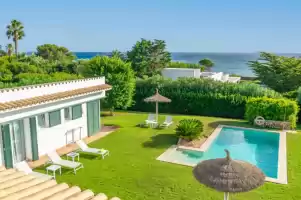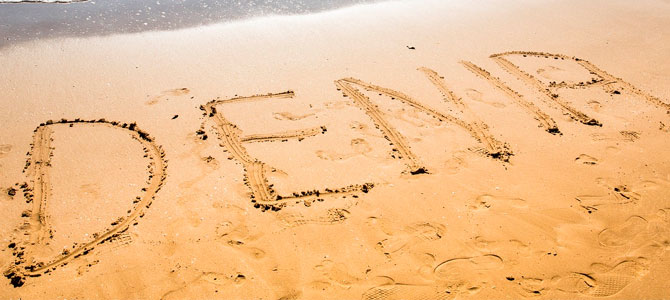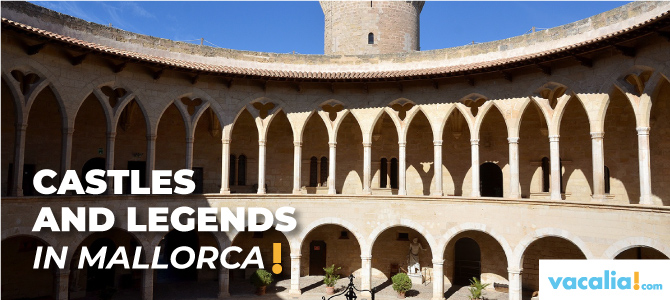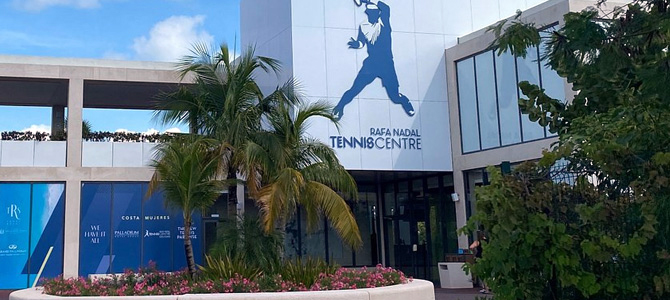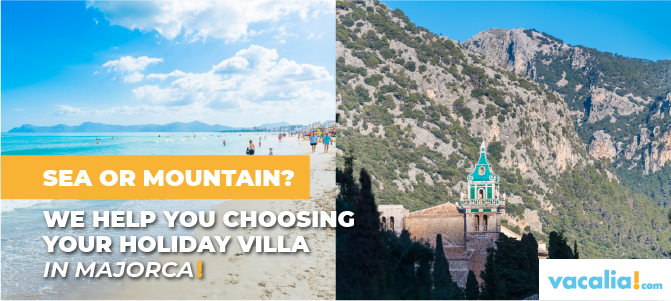One of the most important events of the year is undoubtedly the Sant Joan festivities in Ciutadella, Menorca.
The fiestas are normally held from the 1st to the 25th of June, with the 23rd and 24th being the most important days.
Today we are going to talk about one of the most important celebrations that precedes the most important days and which is not so well known, the Diumenge des Be, which is celebrated on the Sunday before Sant Joan.
The festival of Sant Joan in Menorca dates back to the beginning of the 14th century, and has important traditions such as the “Diumenge des Be”.
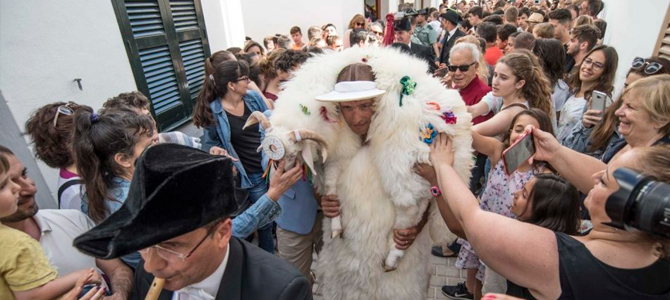
This celebration has transcended the local sphere, attracting thousands of visitors every year, especially from the other Balearic Islands and Catalonia.
What is the “Diumenge des Be” or day of the lamb?
The “Diumenge des Be” is celebrated on the Sunday before Sant Joan (Saint John’s Day), a prologue to the festivities. Originally, on this day, alms were also collected for the organisation of the festivities.
To understand this special day, it is necessary to know its protagonists:
The Homo des Be
Each year a man is designated as the “Homo des Be”. He must carry a horned lamb chosen by the “Caixer Pagés”. During the previous week, on the farm of the “Caixer Pagés”, the ram, the protagonist of the weekend, is washed in order to leave its wool immaculate white.
On Saturday, the ram is taken from the “Caixer Pagès” estate to its inn in Ciutadella, where the “vetlla des Be” begins at 9 pm. Throughout the night and early morning, the ram, placed on a wooden platform, will be visited by the inhabitants of Ciutadella and the whole of Menorca. It will be the centre of attention, attracting the attention of people of all ages who will want to take photos with it. The community will join in the celebration, opening their homes and sharing food and drink in a festive atmosphere of camaraderie.
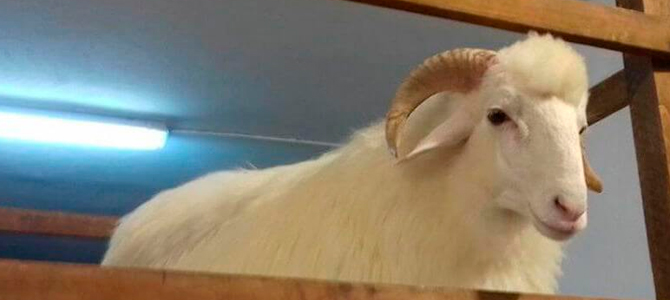
On Sunday, first thing in the morning, “El Homo des Be” that represents the figure of San Juan Bautista with the lamb of God on his back will go to pick up this splendid animal to carry it on his shoulders and walk it around Ciutadella.
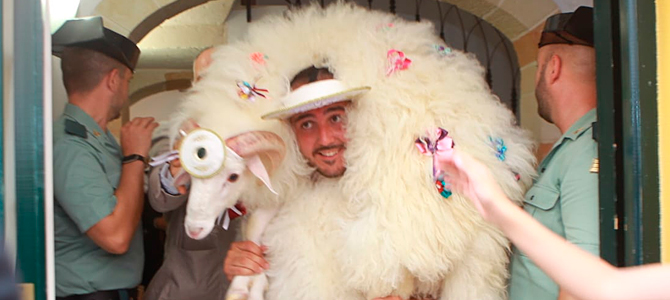
As tradition dictates, the lamb will wear ornaments on its white wool and the “Homo des Be” will wear sheepskins, painted crosses on its bare feet, arms and forehead and will wear a visor embroidered with an “Agnus Dei”.
This figure is not alone in his task, as he has an assistant who helps him load and unload the lamb during the festivity. There is no protocol for the assistant’s dress, so he normally wears a jacket, shirt and long trousers.
In gratitude for his help, the helper receives a quarter of the value of the lamb and half of the cigars given to him during the visits.
The Caixers
The “Junta de Caixers” are horsemen dressed in black and white whose origins date back to the Middle Ages, today they are in charge of the running of the festivities.
The “Caixers” represent the different social classes of the time:
- The “Caixer Senyor” represents the nobility.
- “Caixer Casat” or Menestral (married and artisan work).
- “Caixer Fadrí” (bachelor)
- The “Caixer Capellà” represents the clergy.
- The “Caixers Pagesos” represent the peasants.
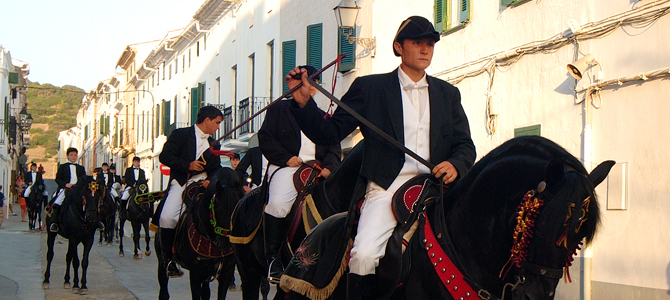
The Fabioler
The “Fabioler”, one of the most representative figures of the local fiestas, is a character who, with his three-hole reed flute called the “flabiol” and his drum, announces the beginning and the end of all the fiestas of San Joan. In Ciutadella, listening to the music of the “Fabioler” is synonymous with revelry. This important figure rides a donkey known as “Somereta”.
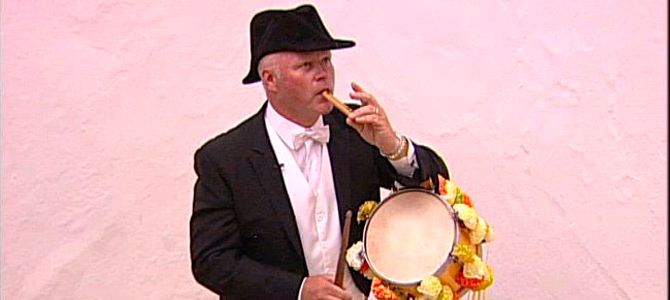
The celebration
The “Junta de Caixers” will meet in the Palace of the “Caixer Senyor”, during this meeting, the “Caixer Senyor” will hand over the flag to the “Caixer Fadrí” (Bachelor) and then the “Fabioler” will sound the drum and the “flabiol” for the first time. Afterwards, the procession led by “El Homo des Be” will continue its route through the streets of the municipality, visiting the town hall, the Episcopal palace, the Born theatre, where the traditional zarzuela “Foc i Fum” is performed, the geriatric hospital, the social entities, the stately palaces and the houses of the “cavallers” (riders similar to the Caixers), with the aim of inviting them to attend the festivities on the 23rd and 24th of June.
The tour can have more than 100 scheduled visits to different parts of the city, a journey that lasts all day until late at night.
On special occasions, “tocs de dol” are held to honour those who have died in the home during the past year.
While the retinue visits the houses of the “cavallers”, in the afternoon-evening, the “ses avellanes” or “hazelnut war” is celebrated, the tradition consists of throwing hazelnuts in the Avenida de la Constitución, between the Bar de Calós and the Plaça de Ses Palmeres, while the Ciutadella music band performs. This moment is very special and the children like it very much, although it turns into a kind of pitched battle, the hazelnuts must be thrown with affection and without hurting anyone, as it is an act of love and joy.
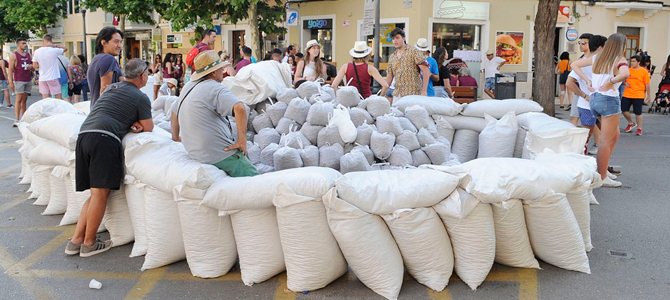
When all the visits and the planned route are finished, the traditional “beguda de caixers” takes place, which consists of the caixers being invited to drink and refresh themselves in the house of the “Caixer Casat” where the flag of Sant Joan is hung. Then at around 10 p.m. the “Caixer Senyor” and the “Caixer Capellà” bid farewell and the day comes to an end.
From Vacalia we hope you liked this article, next we will talk about the most important days of the Sant Joan festivities, see you next week.


